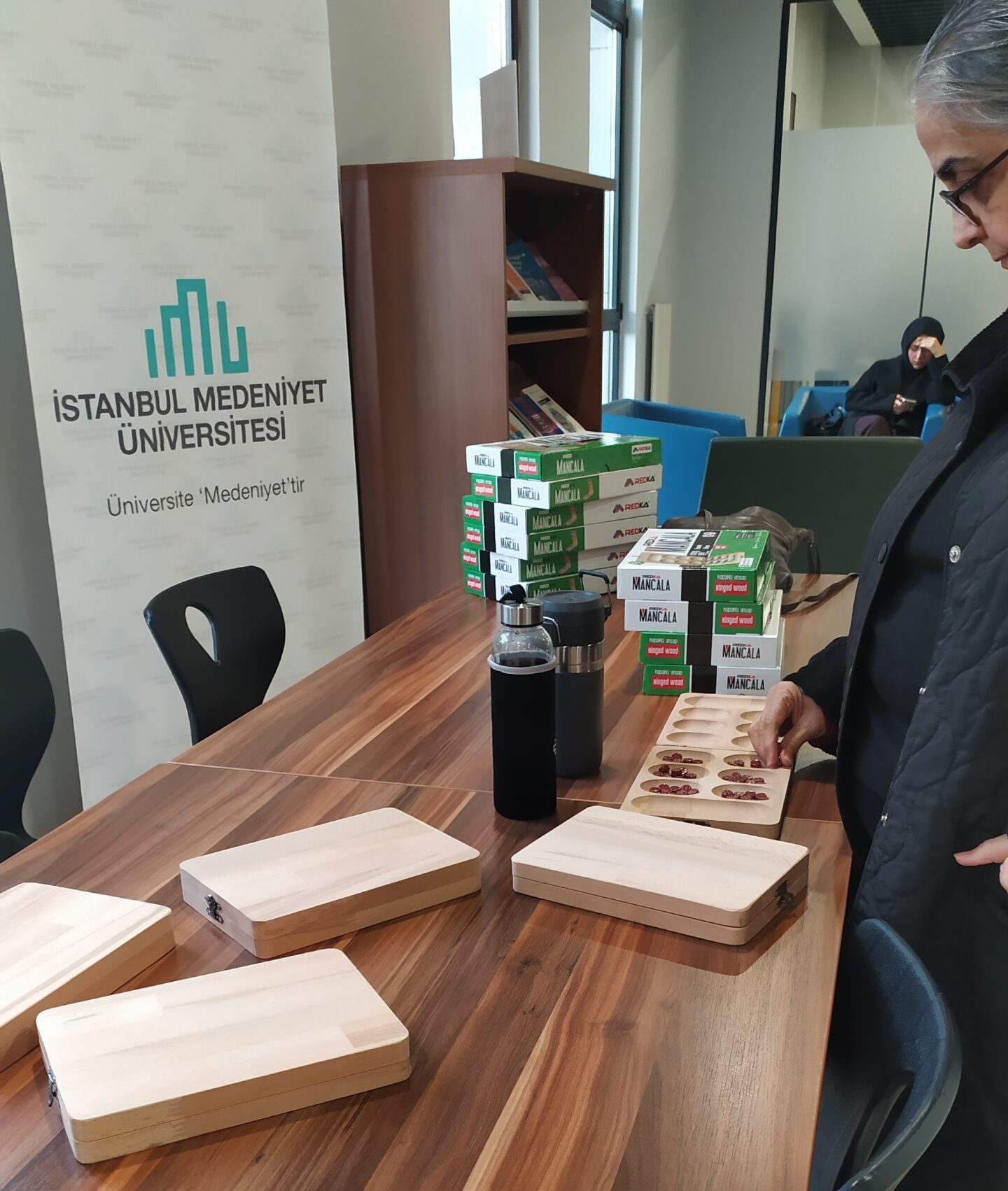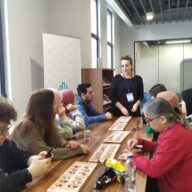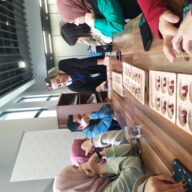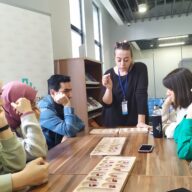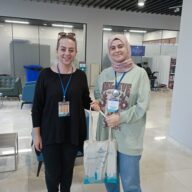Istanbul Medeniyet University Sustainability Office carries out projects for the protection of intangible cultural heritage.
Istanbul Medeniyet University Sustainability Office, within the scope of the “3rd Istanbul Medeniyet University Sustainability Week” activities, organized a workshop to introduce the mangala game, which has an important place in Turkish Culture and is included in the list of Turkey’s intangible cultural heritage by UNESCO, to our campus community and the public. The “Mangala Training and Tournament”, held in Istanbul Medeniyet University Ziraat Bank Library Foyer Area on December 22, 2023, in cooperation with IMU Sustainability Student Club and under the sponsorship of REDKA, was also open to public participation. 12 participants, including 2 external participants, 3 staff and 7 students, competed in the tournament.
At the beginning of the event, Research Assistant Ayça ÇELİKBİLEK from IMU Sustainability Office made a presentation about mangala and its importance in Turkish culture. Stating that the Mangala game is played in many different countries under different names, ÇELİKBİLEK stated that Turkish Mangala is basically a strategy and war game and underlined that the game rules differ in this context. For example, in many versions of the game and in most digital applications, there is no rule of leaving stones in the pit from which the stones were taken, ÇELİKBİLEK stated that in Turkish Mangala, one of the stones taken is left in its own tent, that is, its pit, and stated that this rule is a manifestation of the tradition of protecting the father’s house in Turkish social life. She stated that mangala has an important place in Turkish culture and that it can be played in any environment with pits dug into the ground and simple objects such as stones and seeds, and that examples of mangala have been found in excavations dating back thousands of years in Anatolian lands.
After the presentation, ÇELİKBİLEK explained the rules of Turkish mangala to the participants. After all the information about the game, the participants were paired and the tournament started with wooden mangalas provided by REDKA. At the end of the tournament, a prize package containing a REDKA wooden mangala and sustainable product gifts was presented to Esmanur GÖZCÜ, a student of our University’s Department of Bioengineering, who came first by collecting the most points.
The scores and rankings of the participants in the “Mangala Tournament” are as follows:
| Ranking (Points) | Participant | Ranking (Points) |
Participant |
| 1 (18) | Esmanur GÖZCÜ | 7 (9) | Sıla Selin ÖZKAN |
| 2 (14) | Serra METE | 7 (9) | Furkan ERUÇAR |
| 3 (11) | Deniz Mahir AKAN | 9 (8) | İmen İBRAHİM |
| 3 (11) | Didem ÇELİKBİLEK | 10 (7) | Rıza YÜKSEK |
| 5 (10) | Yağmur ÖNER | 10 (7) | Zehra SAVAN |
| 5 (10) | Yağmur TORUN | 12 (6) | Mine AKCA |
About Mangala
Mangala is a Turkish game of intelligence and strategy. Mentioned by Kashgarli Mahmut in his Divan-ı Lügati’t-Türk, it is thought to be thousands of years old. Archaeologist Flinders Petrie found a mangala board with three rows and fourteen holes dating back to 1400 BC in Egypt. A 4,000-year-old stone of the game was also found in Dastarbashi in Kazakhstan. Historical research shows that the game was also played during the times of the Sakas, Huns and Gokturks.
Starting from the 16th century, Turkish miniatures depicted mangalas. In Western sources, mangala was first mentioned in a book by the English orientalist Thomas Hyde in 1694.
The game, which has spread to many different geographies, has gained some game rules according to the cultural identities of the regions where it is played. For example; in hunter-gatherer societies, the stones are generally called “seeds” and moving the stones is referred to as “scattering seeds”. Turkish mangala, on the other hand, is a strategy and war game, and the stones are seen as “soldiers”. Similarly, while in many examples there is no rule of leaving a stone in the pit from which the stones are taken, in Turkish Mangala, one of the stones taken is left in its own otak, that is, in its own pit. This rule is a manifestation of the Turkish social tradition of protecting one’s father’s home.
Turkish Mangala also symbolizes some concepts. In the game, 12 hollows symbolize 12 months in a year, and each 4 stones in the hollows symbolize 4 weeks. In addition, the treasures on the right and left sides symbolize East and West.

